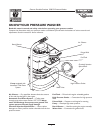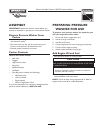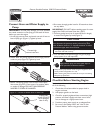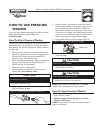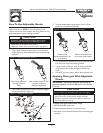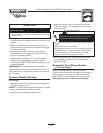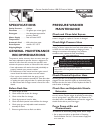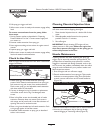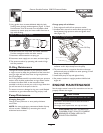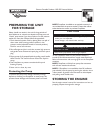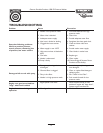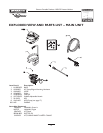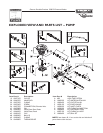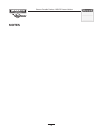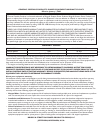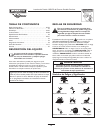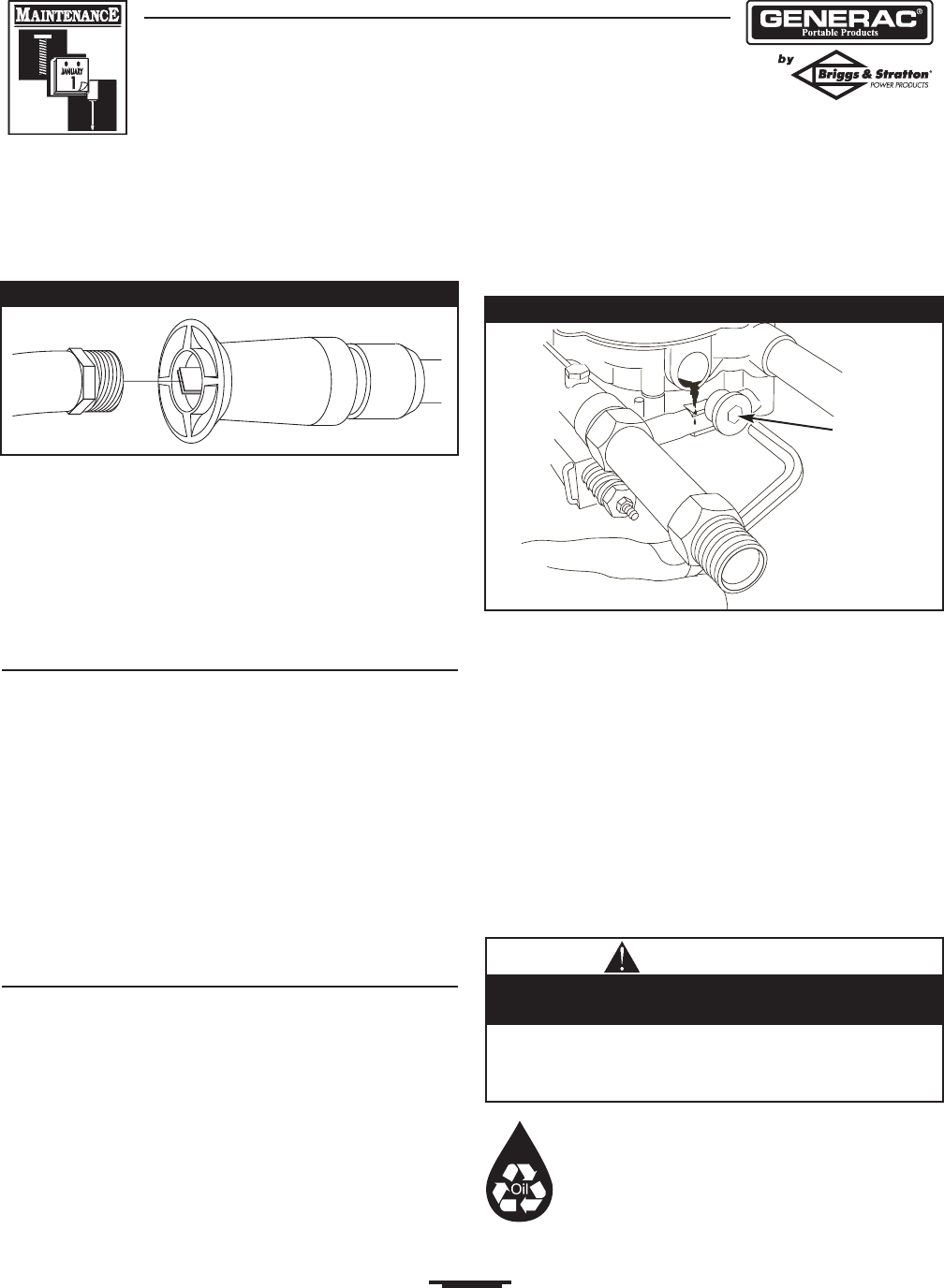
Generac Portable Products 1900 PSI Pressure Washer
13
5. Using garden hose, remove additional debris by back
flushing water through nozzle extension (Figure 11). Back
flush between 30 to 60 seconds.Turn adjustable nozzle
extension to stream spray and move nozzle from low to
high while flushing.
6. Reinstall orifice and in-line filter into nozzle extension.
Do Not overtighten orifice with allen wrench.
7. Reconnect nozzle extension to spray gun.
8. Reconnect water supply, turn on water, and start engine.
9. Test pressure washer by operating with nozzle in high
and low positions.
O–Ring Maintenance
Through the normal operation of your pressure washer,
o–rings are used to keep the connections of the hoses and
spray gun tight and leak–free.These o-rings may become
worn or damaged.
An O–Ring Maintenance Kit is provided with your pressure
washer which includes replacement o-rings, rubber washer
and water inlet filter. Refer to the instruction sheet
provided in the kit to service your unit’s o-rings. Note that
you will not use all of the parts in the kit.
To remove a worn or damaged o–ring; use a small flathead
screwdriver to get underneath the o-ring and pry it off.
Pump Maintenance
Changing Pump Oil
Change oil every 50 hours or once yearly, whichever
occurs first.
NOTE:You must purchase a premeasured bottle of pump
oil, item number 190586GS, by contacting the nearest
authorized service center.
Change pump oil as follows:
1. Drain engine oil and fuel from pressure washer.
2. Use 8mm allen wrench to remove black pump oil cap,
found between high pressure outlet and garden hose
inlet (Figure 12).
3. Tilt pressure washer to drain oil into an approved
container until it drips slowly from the pump.
4. Tilt pressure washer in opposite direction and empty
premeasured pump oil bottle into same opening (a small
funnel may be helpful).
5. Install black pump oil cap and tighten firmly.
6. Set pressure washer in upright position.Add fuel and
engine oil.
ENGINE MAINTENANCE
See the engine owner’s manual for instructions on how to
properly maintain the engine.
CAUTION! KEEP OUT OF REACH OF
CHILDREN. DON'T POLLUTE. CONSERVE
RESOURCES. RETURN USED OIL TO
COLLECTION CENTERS.
Figure 11 — Backflushing the Nozzle
Oil Cap
Figure 12 - Changing Pump Oil
• Used motor oil has been shown to cause skin cancer in
certain laboratory animals.
• Thoroughly wash exposed areas with soap and water.
Avoid prolonged or repeated skin contact with used
motor oil.
CAUTION



